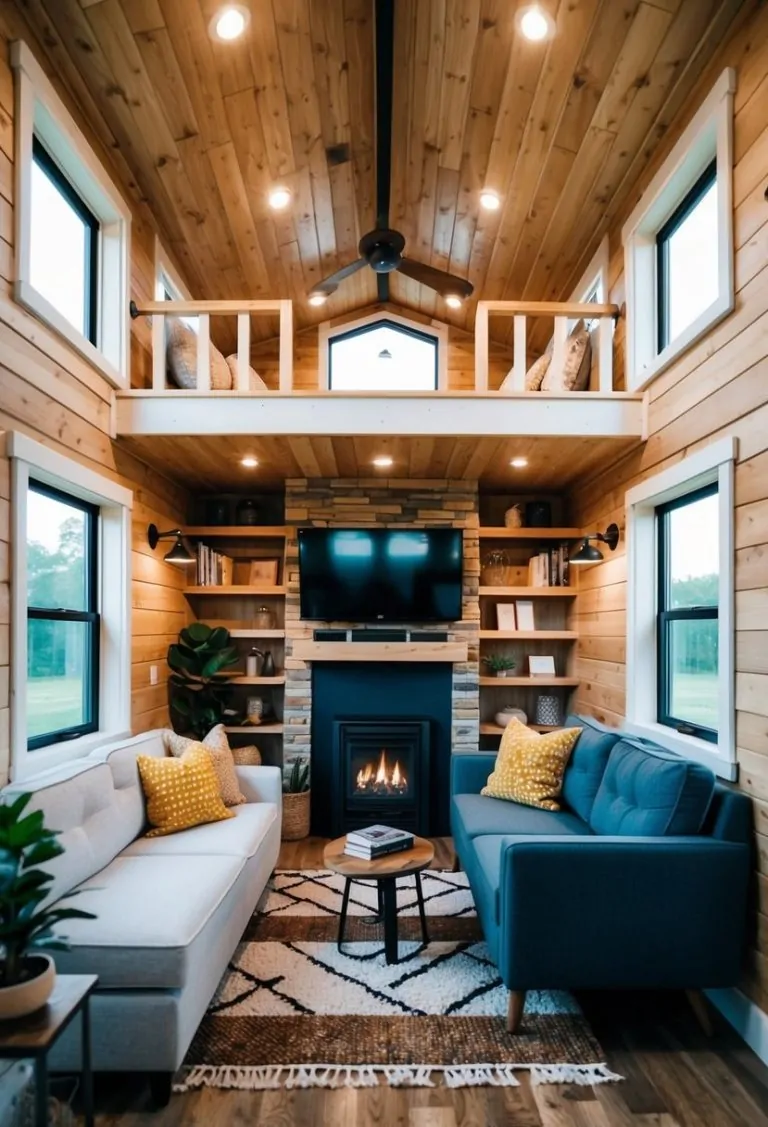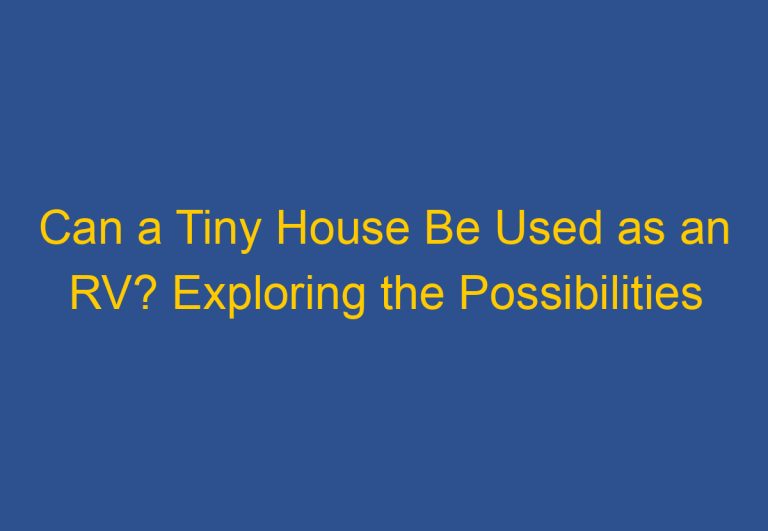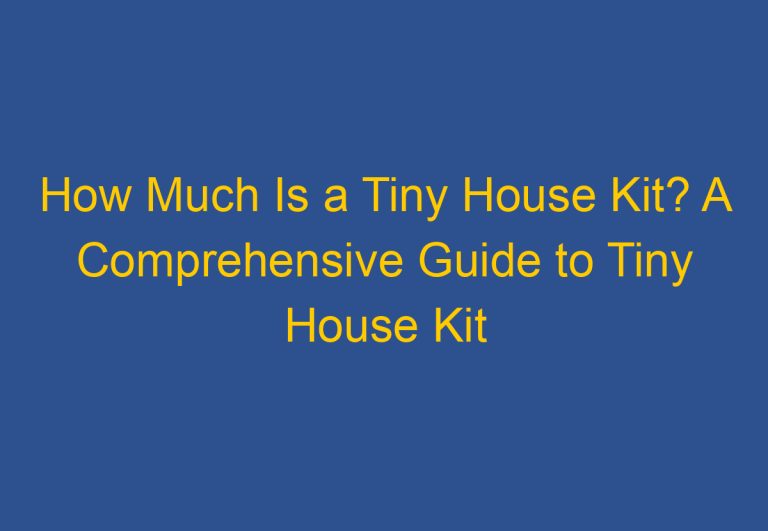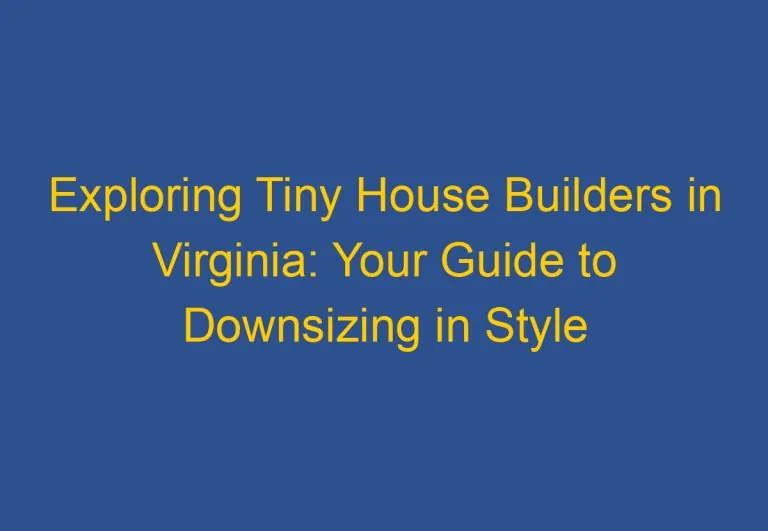Are Tiny Houses Legal in Texas? A Comprehensive Guide to Tiny House Regulations in the Lone Star State
Tiny houses are becoming increasingly popular in Texas as a way to live a simpler, more affordable, and more sustainable lifestyle. However, many people are left wondering whether tiny houses are legal in Texas. The answer is not a simple yes or no, as it depends on several factors, including the size of the tiny house, its location, and its intended use.
In Texas, any house with an area of less than 400 square feet is considered a tiny house. Regulations in Texas favor tiny homes on a foundation, and one can permanently reside in such houses. Alternatively, if axles are removed from a tiny house on wheels, it can also serve as a permanent residential place. However, zoning laws and regulations may limit where tiny houses can be located, and finding a suitable and legal location to park a tiny house can be difficult and time-consuming.
Legality and Zoning Regulations
Statewide Regulations and Local Ordinances
Tiny houses are legal in Texas, but they are subject to zoning regulations and building codes. The regulations and ordinances vary from city to city, and county to county. Therefore, it is crucial to research the local zoning and building codes before building or parking a tiny house.
Texas has no statewide building code for tiny houses. Instead, each city and county has its own regulations for building and zoning. Some municipalities have adopted the International Residential Code (IRC) guidelines for tiny houses, while others have their own development code. It is essential to contact the local planning and zoning office to find out the specific requirements for building a tiny house.
Texas Counties and Cities Specifics
Texas has 254 counties and over 1,200 municipalities. The zoning regulations and building codes vary from county to county and city to city. Some counties and cities have minimum square footage requirements for homes, which may exclude tiny houses. Others have regulations that permit tiny houses on wheels (THOWs) as long as they meet the building code requirements and are parked in designated areas.
Additionally, some municipalities have zoning ordinances that permit tiny houses as commercial or industrial structures, but not as permanent residences. It is essential to research the local zoning regulations and building codes before building or parking a tiny house.
Tiny Houses on Wheels vs. Permanent Foundation
Texas differentiates between tiny houses on wheels (THOWs) and those built on a permanent foundation. THOWs are classified as recreational vehicles (RVs) and are subject to different regulations than permanent structures. THOWs are subject to setbacks, which are the minimum distance a structure must be from the property line or other structures. They must also comply with RV regulations, including plumbing and electrical requirements.
On the other hand, tiny houses built on a permanent foundation are subject to the same building codes and safety standards as traditional homes. They must also comply with land use regulations, property taxes, and permits. It is essential to make a site-specific inquiry into whether a planned tiny house is lawful and meets all the legal requirements.
In conclusion, tiny houses are legal in Texas, but they are subject to zoning regulations and building codes. The regulations and ordinances vary from city to city and county to county. Therefore, it is crucial to research the local zoning and building codes before building or parking a tiny house.
Tiny House Communities and Living
Tiny house living has been gaining popularity in recent years due to its affordability, sustainability, and the opportunity to live a simpler lifestyle. Texas is one of the tiny house-friendly states in the US, with many communities and RV parks catering to tiny home aficionados. In this section, we will explore established tiny house communities, utilities and services, and design and lifestyle considerations.
Established Tiny House Communities
Indigo River Tiny Homes Community is one of the largest tiny house communities in Texas, with over 2,000 homes. It is located in the Dallas-Fort Worth area and offers various amenities such as community gardens, pocket parks, and an amphitheater. Another notable tiny house community is the Village Farm Tiny Home Community in Austin, which boasts a farm-to-table lifestyle and sustainable living.
Utilities and Services
When it comes to utilities and services, tiny house communities and RV parks offer different options. Some communities provide full hookups for water, electricity, and sewage, while others offer off-the-grid living options. It’s essential to consult with the planning department of the county where the tiny home will be located to ensure compliance with zoning code rules and building permits.
Design and Lifestyle Considerations
Design and lifestyle considerations are crucial when it comes to tiny house living. For instance, some tiny homes are built on a foundation, while others are built on wheels. Standalone cottages are also a popular option for those who want a permanent tiny home. It’s important to note that tiny homes on a foundation are subject to real estate tax, while those on wheels are subject to motor vehicle tax. Additionally, transitional structures such as small dwellings and RV parks are subject to personal property tax.
In conclusion, tiny house living is a viable option for those who want to downsize and live sustainably. Texas has many tiny house communities and RV parks that cater to the tiny house movement. It’s essential to consult with the planning department of the county where the tiny home will be located to ensure compliance with zoning code rules and building permits.
Frequently Asked Questions
What are the zoning regulations for tiny houses in Texas?
Zoning regulations for tiny houses in Texas vary from city to city and county to county. Some counties, such as Brown County, permit tiny houses under certain conditions, while others may have more stringent regulations or outright prohibit tiny houses. It is important to research and understand the zoning regulations in the specific area where you plan to build or park your tiny house.
Is there a minimum square footage requirement for homes in Texas?
Yes, there is a minimum square footage requirement for homes in Texas. The minimum square footage requirement varies depending on the city or county where the home is located. However, any house with an area of less than 400 square feet is considered a tiny house in Texas.
What permits are required to build a tiny house in Texas?
The permits required to build a tiny house in Texas vary depending on the location and the type of tiny house being built. Generally, a building permit is required for any new construction, including tiny houses. In addition, electrical, plumbing, and mechanical permits may also be required. It is important to research and understand the specific permit requirements in the area where you plan to build your tiny house.
Are there property taxes for tiny homes in Texas?
Yes, there are property taxes for tiny homes in Texas. The property tax rate is based on the value of the property, including the value of the tiny house and any improvements made to the property. It is important to research and understand the property tax regulations in the area where you plan to park your tiny house.
Can a tiny house be classified as a guest house on my property in Texas?
Yes, a tiny house can be classified as a guest house on your property in Texas. However, the classification of a tiny house as a guest house may depend on the specific regulations in the city or county where the property is located. It is important to research and understand the regulations in your area.
What are the legalities surrounding the sale of tiny homes in Texas?
The legalities surrounding the sale of tiny homes in Texas are similar to those of traditional homes. A seller must disclose any known defects or issues with the property, and a buyer should have a home inspection conducted before purchasing the property. It is important to work with a licensed real estate agent or attorney to ensure that all legal requirements are met when buying or selling a tiny home in Texas.










